
This annual symposium is held in honor of the late Erich Bloch, former director of the National Science Foundation and vice president of IBM who helped endow the Department of Materials Design and Innovation (MDI) at the University at Buffalo. The inaugural symposium in 2017 helped launch MDI, and since then has brought together academic, business, and community leaders with a focus on materials, technological innovation, and their impact on society.
Materials Innovation: From Molecules to Neighborhoods
This year's theme is Materials Innovation: From Molecules to Neighborhoods. The urgency in addressing grand challenges in energy, health, and the environment demands innovative solutions and adaptive strategies for a sustainable, resilient future. As we move close to surpassing critical thresholds, hastening a tipping point for planetary health, advances in materials science will play an important role in revitalizing and reinforcing planetary boundaries. However, materials innovation must take place in conjunction with advances across all aspects of human, technological, and physical systems for holistic and enduring impacts.
This year’s symposium will delve into these interconnected issues, with speakers examining transformative approaches unfolding across diverse sectors. The common theme across these examples is the role of AI in driving these innovations. We will conclude the symposium by exploring AI’s potential to enable transformative solutions, and acknowledging both the unprecedented opportunities that it affords as well as its limitations.
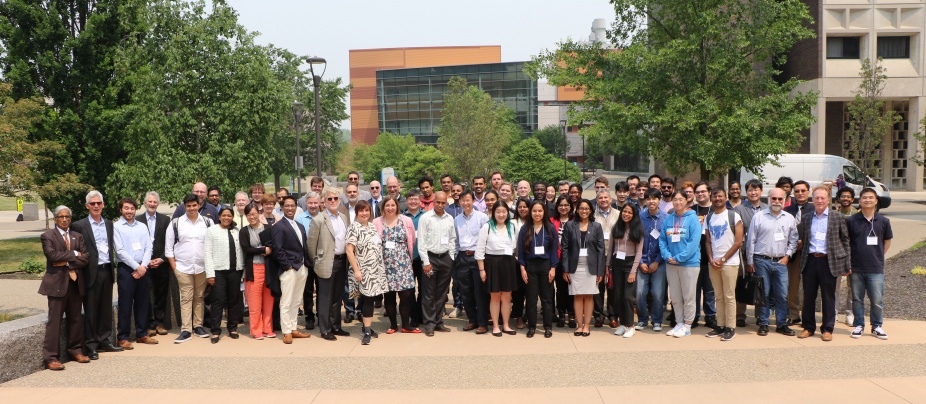
Tuesday, June 4 | 101 Davis Hall | North Campus
Time | Topic | Speaker(s) |
|---|---|---|
| 8:00 a.m. | Registration | |
| 8:30 - 9:00 a.m. | Welcome and Introductions | From Molecules to Neighborhoods: Krishna Rajan; SUNY Distinguished Professor and Erich Bloch Chair, Department of Materials Design and Innovation; University at Buffalo
Symposium Opening Remarks: Robin Schulze; Dean, College of Arts and Sciences; University at Buffalo |
| 9:00 - 9:40 a.m. | The Techniques of Sociotechnical Creativity | Thanassis Rikakis; Dean, Iovine & Young Academy; University of Southern California |
| Session I: Benign by Design | Session Chair: Edward Snell; Director, NSF STC BioXFEL; Senior Scientist, CEO of Hauptman-Woodward Medical Institute; Professor, Department of Materials Design and Innovation, University at Buffalo | |
| 9:50 - 10:30 a.m. | The Law of Unintended Consequences, Public Health Dentistry, and Engineering | Marcello Araujo; Dean, School of Dental Medicine, University at Buffalo |
| 10:30 - 10:45 a.m. | ----------Break---------- | |
| 10:45 - 11:20 a.m. | Apple Smarter Chemistry + PFAS Phaseout Commitment | Arthur Fong; Technical Leader, Environmental Technologies; Apple, Inc. |
| 11:20 a.m. - 12:00 p.m. | Panel | Prathima Nalam (Panel Chair); Associate Professor, Department of Materials Design and Innovation, University at Buffalo
Alexandra McPherson; Director Investor Environmental Health Network; Clean Production Action
Seval Yildirim; Vice Provost for Inclusive Excellence, University at Buffalo
Eloise Bihar; Assistant Professor, Department of Materials Design and Innovation, University at Buffalo |
| 12:00 - 1:00 p.m. | ----------Lunch---------- | Boxed lunch will be provided |
| 1:00 - 1:45 p.m. | Panel Continued | Prathima Nalam (Panel Chair); Associate Professor, Department of Materials Design and Innovation, University at Buffalo
Alexandra McPherson; Director Investor Environmental Health Network; Clean Production Action
Seval Yildirim; Vice Provost for Inclusive Excellence, University at Buffalo
Eloise Bihar; Assistant Professor, Department of Materials Design and Innovation, University at Buffalo |
| Session II: Creating an Inclusive Knowledge Economy | Session Chair: Fei Yao; Assistant Professor, Department of Materials Design and Innovation, University at Buffalo | |
| 1:55 - 2:30p.m. | Emerging Technologies, Unbalanced Labor Market Power, and the Unpredictable Future of Work | Joanne McLaughlin; Associate Professor, Department of Economics, University at Buffalo |
| 2:30 - 3:50 p.m. | Panel | Erik Einarsson (Panel Chair); Associate Professor, Department of Materials Design and Innovation, University at Buffalo
K. Venkatesh Prasad; Senior Vice President and Chief Innovation Officer, Center for Automotive Research
Kim Lloyd; Director of Special Projects; Fuzehub
Seval Yildirim; Vice Provost for Inclusive Excellence, University at Buffalo
Thanassis Rikakis; Dean, Iovine & Young Academy; University of Southern California
Scott Broderick; Associate Professor, Department of Materials Design and Innovation, University at Buffalo |
| 3:50 - 4:10 p.m. | ----------Break---------- | |
| Session III: Student Jamboree | Session Chair: Scott Broderick; Associate Professor, Department of Materials Design and Innovation, University at Buffalo
| |
| 4:10 - 5 p.m. | Student Presentations | Presentations by graduate students from the Department of Materials Design and Innovation, University at Buffalo |
| 5:30 - 7:30 p.m. | Poster Session and Reception (Salvadore Lounge, Davis Hall) |
Wednesday, June 5 | 101 Davis Hall | North Campus
Time | Topic | Speaker(s) |
|---|---|---|
| 8:30 - 9:00 a.m. | Welcome | Kemper Lewis; Dean, School of Engineering and Applied Sciences, University at Buffalo |
| Session IV: Materials Driven Innovation | Session Chair: Quanxi Jia; SUNY Distinguished Professor, Department of Materials Design and Innovation, University at Buffalo | |
| 9:10 - 9:50 a.m. | Data-Driven Innovation of Semiconductor Materials for Advanced Technology Nodes | Ajey Jacob; Director, Advanced Electronics, Information Sciences Institute, University of Southern California |
| 9:50 - 10:30 a.m. | The Electric Vehicle Transition: A Call to Materials Innovation | K. Venkatesh Prasad; Senior Vice President and Chief Innovation Officer, Center for Automotive Research |
| 10:30 - 10:45 a.m. | ----------Break---------- | |
| 10:45 - 12:00 p.m. | Panel | Wei Chen (Panel Chair); Associate Professor, Department of Materials Design and Innovation, University at Buffalo
K.K. Sankaran; Washington University, St. Louis
Mark O’Neil; Founder and CEO, Innovation Impact Partners, Inc.
Dennis Elsenbeck; Head, Energy and Sustainability; Energy Consultant Services, Philips Lytle
Eric Osei-Agyemang; Assistant Professor, Department of Materials Design and Innovation, University at Buffalo |
| 12:00 - 1:00 p.m. | ----------Lunch---------- | Boxed lunch will be provided |
| Session V: Small Data for Big Discoveries | Session Chair: Olga Wodo; Associate Professor, Department of Materials Design and Innovation, University at Buffalo | |
| 1:10 - 1:45 p.m. | Adapting Chatgpt to Specialized Domains through Expert Fine Tuning and In-Context Learning | Rohini Srihari; Professor, Department of Computer Science and Engineering; University at Buffalo |
| 1:45 - 2:20 p.m. | AI, Science, and All That | E. Bruce Pitman; Interim Vice President and Chief Information Officer; Professor, Department of Materials Design and Innovation; University at Buffalo |
| 2:20 - 3:45 p.m. | Panel | Kris Reyes (Panel Chair); Assistant Professor, Department of Materials Design and Innovation, University at Buffalo
Christophe Nicolle; Professor, Computer Science and Reasoning Systems; University of Bourgogne, France
Francis Alexander; Director, AI Research and Strategic Development; Argonne National Laboratories |
| 3:45 - 4:00 p.m. | Concluding Comments | Krishna Rajan; SUNY Distinguished Professor and Erich Bloch Chair, Department of Materials Design and Innovation; University at Buffalo |
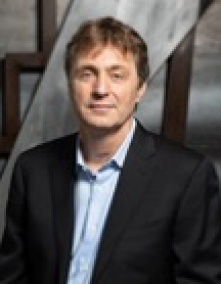
Thanassis Rikakis
Dean, Iovine & Young Academy; University of Southern California
Dr. Thanassis Rikakis is the second dean of the Iovine and Young Academy (IYA) for Arts, Technology, and the Business of Innovation at the University of Southern California. The IYA provides unique BS and MS degrees that cultivate expertise at the intersection of technology, design, business, and creativity. Dr. Rikakis is also a professor at the IYA and a courtesy professor of Bioengineering at the USC Viterbi School of Engineering. He co-leads the USC Interactive Neurorehabilitation Lab. His research spans systems design, engineering, and arts with a special focus on interactive neurorehabilitation, adaptive learning, experiential media, and cyber-human intelligence. Before joining the Academy Dr. Rikakis served as founding director of the Calhoun Honors Discovery Program and director of the Calhoun Center for Higher Education Innovation. These initiatives focus on adaptive, transdisciplinary, and trans-sector life-long learning. From 2015 until 2017 Dr. Rikakis served as executive vice president and provost at Virginia Tech, where he led the development of transdisciplinary discovery communities, and co-led plans for the expansion of the university’s health sciences campus in Roanoke and cross-sector initiatives in Northern VA. From 2012 to 2015 he served as vice provost for design arts and technology at Carnegie Mellon University where he founded the Integrative Design, Arts and Technology (IDEATE) network. He has also served as founding director of the School of Arts, Media, and Engineering at Arizona State University and Associate Director for Research and Development of the Computer Music Center at Columbia University. Dr. Rikakis has authored 45 publications spanning computing, engineering, health, education, design, and the arts. He has composed 30 original music compositions performed internationally.
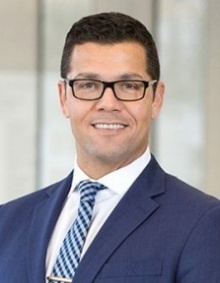
Marcelo Araujo
Dean, School of Dental Medicine, University at Buffalo
Marcelo Araujo, DDS, MS ’99, PhD ’03, dean of the University at Buffalo School of Dental Medicine, is a distinguished academic leader, esteemed professor of periodontology, and proud UB alumnus. An internationally recognized clinical researcher and epidemiologist, he joined the school in 2023 as its 14th dean.
Prior to joining UB as dean and professor, Dr. Araujo was the chief science officer of the American Dental Association (ADA), chief executive officer of the ADA Science & Research Institute (ADASRI), and interim chief executive officer of the ADA Foundation (ADAF). These influential roles allowed him to cultivate strategic insights and develop expertise in organized dentistry. He also held positions in the pharmaceutical industry, where he made a significant impact in health care products research for more than a decade.
Dr. Araujo’s extensive experience in clinical care, research, health care business, and health sciences complements his deep understanding of the opportunities and challenges in dentistry. His emphasis on leveraging the power and science of innovation enhances the school’s academic, research, and clinical endeavors while improving its national and global rankings and reputation.
Dr. Araujo earned a PhD in epidemiology and community health and a master’s degree in oral sciences from UB, where he also completed a fellowship in periodontology clinical research and teaching. He received his DDS in 1995 and a certificate in periodontology in 1997 from Universidade Gama Filho in Rio de Janeiro, Brazil.
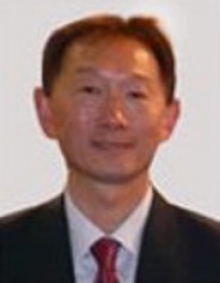
Arthur Fong
Technical Leader, Environmental Technologies; Apple, Inc.
Art Fong is the Technical Leader for Smarter Chemistry on the Environment Technologies team at Apple, driving chemistry innovation and rigorous controls to design products to be safe for anyone who assembles, uses, or recycles them — and to be better for the environment. He also manages the Apple Green Chemistry Advisory Board, an independent group of leading researchers and academics focused on integrating green chemistry into Apple’s products and supply chain.
Dr. Fong is engaged in a number of collaborative projects to advance the science and practice of green, sustainable chemistry to catalyze change across the electronics industry and beyond. He is co-chair of CHEMFORWARD’s Technical Advisory Group, working to guide hazard assessment harmonization, data quality, process transparency, and scientific integrity to identify chemicals that are inherently benign for their intended use. Dr. Fong is on the Design Team of the Clean Electronics Production Network, which unites diverse stakeholders to understand, address, and eliminate workers’ exposure to toxic chemicals in the electronics supply chain. He is also a member of the Green Ribbon Science Panel, who advise the California Department of Toxic Substances Control on the implementation of the Safer Consumer Products (SCP) Regulations and other topics related to green chemistry. Dr. Fong is an Advisory Board member of the recently (2024) launched Safer Chemistry Impact Fund, which was created to mobilize global investment to systematically eliminate hazardous chemicals and replace them with safer alternatives that are verified to be protective of human and environmental health.
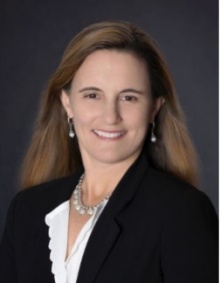
Alexandra McPherson
Director Investor Environmental Health Network; Clean Production Action
Alexandra McPherson is director of the Investor Environmental Health Network (IEHN) for Clean Production Action. Through IEHN, Alexandra provides expertise, guidance, and counsel to investors on engagement strategies that positively impact corporate behavior on chemical footprinting, more sustainable and safer chemistry innovations, and environmental justice.
Alexandra leverages her deep competency in communications and partnership development to build multistakeholder initiatives that motivate change and investment in environmental solutions critical to chemical pollution, biodiversity loss, and climate change. Her work includes convening global leaders from finance, industry, environmental advocacy, and government to influence time-bound targets in innovative platforms such as the United Nations’s Global Framework on Chemicals: For a Planet Free of Harm from Chemicals and Waste. Ms. McPherson’s partnership work with academia has resulted in the Collaborative for the Regenerative Economy (CoRE) with the University at Buffalo's Materials Design and Innovation Department and Transition Finance for Sustainable Chemicals and Materials with the Sustainable Chemistry Catalyst at the University of Massachusetts Lowell.
Alexandra co-founded Clean Production Action and is a principal of Niagara Share LLC. She is a graduate of the Stanford University School of Business LEAD Executive Education program and obtained her undergraduate degree in Communications at the University of New Hampshire (UNH). She serves on the board of Clean + Healthy NY, UNH’s Sustainability Advisory Board, and Change Chemistry’s Member Advisory Committee.
McPherson received her BA from the University of New Hampshire and is a graduate of the LEAD program at the Stanford Graduate School of Business.
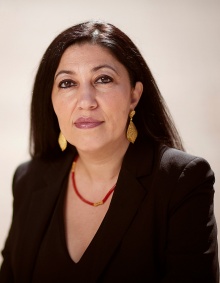
Seval Yildirim
Vice Provost for Inclusive Excellence, University at Buffalo
Seval Yildirim is the Vice Provost for Inclusive Excellence, Chief Diversity Officer, and Professor of Law at the University at Buffalo (UB). Before coming to UB last fall, she was the Vice President for Diversity Initiatives and Chief Diversity Officer at the University of Nevada, Las Vegas (UNLV). Prior to UNLV, Yildirim was Associate Provost for Faculty Affairs and Development and Co-Chief Diversity Officer at California State University, San Bernardino (CSUSB). A professor of law at Whittier College before joining CSUSB, Yildirim has also held visiting faculty positions at Harvard, UC Berkeley, Villanova University, and New York University.
Professor Yildirim is a scholar and leader with an impressive record of advancing equity and inclusivity in higher education in the areas of recruiting and retaining faculty and students from underrepresented groups, promoting inclusive pedagogy and classrooms, and building high school-to-university pipelines. Her research and scholarship center on secularism in comparative contexts, focusing on Turkey, India, and the United States, as well as international human rights and issues of human dignity, specifically regarding minority religious identities. Professor Yildirim has taught courses on Islamic law, international law, comparative law, and U.S. constitutional law.
Professor Yildirim holds a JD and LLM from the New York University School of Law, an MA in International Affairs from the Elliott School of International Affairs at George Washington University, and a BA from Randolph-Macon Woman's College.Seval Yildirim is the Vice Provost for Inclusive Excellence, Chief Diversity Officer, and Professor of Law at the University at Buffalo (UB). Before coming to UB last fall, she was the Vice President for Diversity Initiatives and Chief Diversity Officer at the University of Nevada, Las Vegas (UNLV). Prior to UNLV, Yildirim was Associate Provost for Faculty Affairs and Development and Co-Chief Diversity Officer at California State University, San Bernardino (CSUSB). A professor of law at Whittier College before joining CSUSB, Yildirim has also held visiting faculty positions at Harvard, UC Berkeley, Villanova University, and New York University.
Professor Yildirim is a scholar and leader with an impressive record of advancing equity and inclusivity in higher education in the areas of recruiting and retaining faculty and students from underrepresented groups, promoting inclusive pedagogy and classrooms, and building high school-to-university pipelines. Her research and scholarship center on secularism in comparative contexts, focusing on Turkey, India, and the United States, as well as international human rights and issues of human dignity, specifically regarding minority religious identities. Professor Yildirim has taught courses on Islamic law, international law, comparative law, and U.S. constitutional law.
Professor Yildirim holds a JD and LLM from the New York University School of Law, an MA in International Affairs from the Elliott School of International Affairs at George Washington University, and a BA from Randolph-Macon Woman's College.
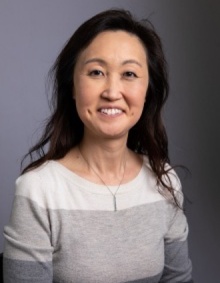
Joanne McLaughlin
Associate Professor, Department of Economics, University at Buffalo
Joanne Song McLaughlin is an Associate Professor in the Department of Economics at the University at Buffalo. She is a labor economist whose research evaluates public policies that affect vulnerable populations faced with critical life transitions such as older workers’ transition to retirement and young adults’ transition to adulthood. Dr. McLaughlin’s work examines the intended and unintended consequences of public policies such as anti-discrimination laws, health insurance mandates, barriers to retirement, and the potential effects of artificial intelligence on the future of work, which has been influential in designing more effective evidence-based legislation. Dr. McLaughlin has compared the impact of Social Security reform to extend the work lives of older workers across states that provide varying employment protections. She has documented an important shortcoming of our current anti-discrimination laws in protecting older women in the workplace due to a peculiarity in our legal system. For young adults, Dr. McLaughlin’s research has shown that state health insurance mandates that impose dependency requirements contributed to lowering the marriage rate of young adults and raised the probability of young women having children out-of-wedlock. She has published in numerous peer-reviewed journals and she teaches labor economics, econometrics, and econometric methods for causal inference.
Dr. McLaughlin received her PhD in economics from the University of California, Irvine.
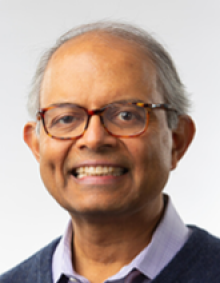
K. Venkatesh Prasad
Senior Vice President and Chief Innovation Officer, Center for Automotive Research
Dr. K. Venkatesh Prasad serves as the Senior Vice President of Research and Chief Innovation Officer at the Center for Automotive Research. Prior to joining CAR, Dr. Prasad spent over 26 years at Ford Motor Company, where he held a broad range of leadership roles in R&D and innovation acceleration across Ford’s global Vehicle Components & Systems Engineering organization, and most recently in Corporate Strategy. During that time, he co-founded and led Ford’s Silicon Valley Labs in Palo Alto, California.
Before joining Ford, Dr. Prasad was a Senior Research Scientist at the Ricoh California Research Center. Prasad earned his Ph.D. in Electrical Engineering from Rutgers University and an M.S. in Electrical Engineering from Washington State University, both with an emphasis in computer engineering. Dr. Prasad earned an M.S. in Electrical Engineering from IIT Madras, and a B.E. in Electronics and Communications Engineering from NIT Trichy, University of Madras, where he received a distinguished alum award.
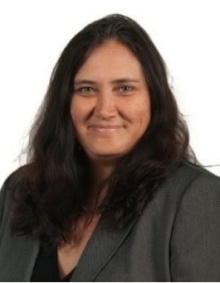
Kim Lloyd
Director of Special Projects; Fuzehub
Kim Lloyd is the Director of Special Projects at Fuzehub, a business development service for start up, small and mid-sized companies in New York State. Ms. Lloyd is an experienced leader in the internet, technology, and manufacturing space. She was the Director of Operations and Enterprise Products at GlobalSpec, a portal designed to connect industrial part manufacturers with engineering professionals around the globe. In addition, she worked at MapInfo for 14 years as a Product Manager and Product Marketing Manager for several GIS software products.
As the VP of Marketing and COO of Bright Hub, Ms. Lloyd led the creation of a high-volume, multimillion-dollar media property website from the ground up with a 12-person team and freelance network of over 3,000 writers and editors. Traffic grew from 0 to 18 million visits a month in under 4 years and was one of the top 100 website properties in the United States.
In addition to her duties at FuzeHub, Ms. Lloyd’s company, Latham Group Consulting, has helped clients in the IT, health care, and manufacturing industries design and build small websites to large-scale portals. As Director of Special Projects for FuzeHub, Ms. Lloyd is responsible for guiding the efforts of several programs targeted at helping small to mid-size manufacturers including supply chain projects, as well as overseeing the technology driving the FuzeHub B2B Connection portal. In addition, Ms. Lloyd is tasked with growing FuzeHub’s ecosystem through grants and marketing services.
Ms. Lloyd holds a Bachelor of Science in Information Systems Management from SUNY Buffalo State and an MBA in Management and Technology from Rensselaer Polytechnic Institute.
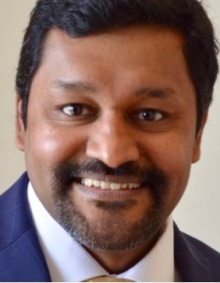
Ajey Jacob
Director, Advanced Electronics, Information Sciences Institute, University of Southern California
Ajey Jacob is the Director of the Application Specific Intelligent Computing (ASIC) Lab, a hardware research group at the University of Southern California's Information Sciences Institute (ISI). He brings 16 years of industry research, development, and manufacturing experience from Intel Corporation and GlobalFoundries (GF) to ISI. He primarily focuses on materials, devices, integration, and fabrication aspects of advanced and differentiating technology research.
Before joining ISI in 2019, Dr. Jacob generated a strategy, founded, and managed the Differentiating Technology Research Group for the GF's worldwide R&D. He has also served GF in various other capacities, such as leading the exploratory device and integration research group for the IBM Alliance in Albany, NY. Until 2011, Dr. Jacob worked as a senior research scientist for Intel Corporation's component research organization. At Intel, he managed two industry-sponsored strategic research consortia for next-generation CMOS devices and materials, and many other Intel-sponsored research projects. He has also been a device engineer supporting the high-volume manufacturing at Intel and GlobalFoundries.
In addition to his numerous publications, Dr. Jacob has more than 300 worldwide patents. At GF, Dr. Jacob was conferred the title of Master Inventor from the years 2017 to 2020. In 2013' and 2016' Semiconductor Research Corporation (SRC) awarded him with the Mahboob Khan Outstanding Industry Liaison Award.
Dr. Jacob received his Ph.D. in Physics from the Chalmers University of Technology/ Gothenburg University, Gothenburg, Sweden, in 2002.
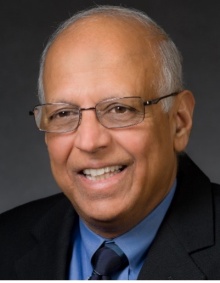
K. K Sankaran
Washington University, St. Louis
Dr. K. K Sankaran retired as Senior Technical Fellow from Boeing in 2014. He has been an adjunct faculty at several universities since 1991 and presently teaches a course at Washington University in St. Louis. His expertise is in metallic materials and processes related to aerospace products from their conception through design, manufacture, service, and retirement. Dr. Sankaran’s key contributions include the development of technologies related to the insertion of alloys and related fabrication processes in aerospace products. He has also developed metrics for life prediction models to anticipate and reduce the cost of repair and maintenance of parts in service.
Dr. Sankaran has helped set up global research collaborations with public and private scientific organizations and academic institutions in the US, UK, Australia, and India. He has served as a member of the Chancellor’s National Research Advisory Council, Washington University in St. Louis, and on the Council and Research Board of The Welding Institute, UK. He is the prime author of the textbook “Metallurgy and Design of Alloys with Hierarchical Microstructures”, Elsevier (2017) with the second edition in preparation.
Dr. K. K Sankaran received his PhD in metallurgy from the Massachusetts Institute of Technology.
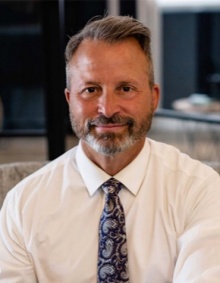
Mark O’Neill
Founder and CEO, Innovation Impact Partners, Inc.
Mark O’Neill is the Founder & CEO of Innovation Impact Partners and has more than 25 years of industrial experience in the creation, development, commercialization, and value maximization across all segments of advanced materials and technology for semiconductor manufacturing.
Dr. O’Neill discovered and commercialized porous extreme low dielectric constant materials for interconnect manufacturing. As a Global Technology Director of a Deposition Materials Division, he led the new product development for the first low-temperature silicon oxide atomic layer deposition family of products. He also gained extensive experience as the Global Technology Director for Planarization Materials, developing high-performance chemical mechanical planarization slurries. Most recently Dr. O’Neill served as Chief Technology Officer for one of the world’s largest and most diverse semiconductor materials businesses, including specialty gases and advanced patterning technology. He has co-authored more than 70 patent families, published and presented more than 50 papers, and delivered multiple invited talks at international symposia focused on new materials and processes for semiconductor manufacturing.
Dr. O’Neill received his PhD from Carleton University in Ottawa, Canada, and held postdoctoral research positions at the University of Texas, Austin, and the University of Pittsburgh.
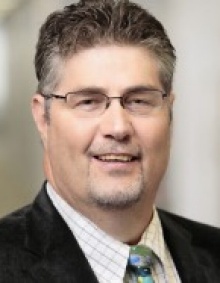
Dennis Elsenbeck
Head, Energy and Sustainability; Energy Consultant Services, Philips Lytle
Dennis Elsenbeck is Head of Energy and Sustainability, Energy Consulting Services; Buffalo. He provides consulting services on a broad range of energy-related opportunities encompassing a forward view of supply, distribution, and demand options. In his leadership role with a major U.S. utility for nearly 30 years, At Phillips Lytle, Mr. Elsenbeck provides business perspectives on long-term policies and the economic landscape. He assists clients with due diligence and regulatory compliance on energy transactions; regulatory counseling involving Public Service Commission proceedings; energy procurement and utility negotiations involving government entities and municipalities; procurement consulting regarding the reduction of energy costs and review of economic incentives; market-driven integrated resource planning and identifying commercial and technical issues associated with energy-related opportunities. Mr. Elsenbeck helps clients move critical energy projects forward by providing creative solutions and overcoming project challenges. He works to develop the voice of the consumer in energy policy and bill impacts as sustainability becomes a focus of energy policy. He collaborates with clients in shaping the “utility of the future.”
Mr. Elsenbeck is a well-recognized expert in the energy field and is a highly sought-after lecturer on a variety of topics across the U.S. He served on the 22-Member Climate Action Council that developed the recommendations for the Scoping Plan to meet the objectives of NY’s Climate Leadership and Community Protection Act.
Mr. Elsenbeck received his master’s degree in applied engineering from the University at Buffalo and his MBA degree from the University of Rochester.
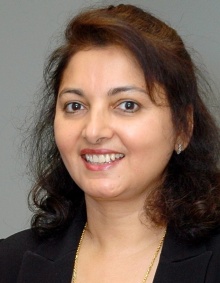
Rohini Srihari
Professor, Department of Computer Science and Engineering; University at Buffalo
Rohini Srihari is a professor in the Dept. of Computer Science and Engineering at the State University of New York, Buffalo where her research focuses on natural language processing, artificial intelligence, machine learning, and information retrieval. Dr. Srihari’s research focuses on advancing the state-of-the-art in socialbots capable of engaging in empathetic, interesting, and purposeful conversations. She directs a research group focused on Conversational AI for Social Good that addresses research issues in building trustworthy socialbots for various purposes, including combating disinformation as well as assisting the disabled. In 2021 Dr. Srihari supervised an interdisciplinary student team that competed and won the bronze prize in the Alexa Prize Socialbot Grand Challenge.
Dr. Srihari has also worked extensively with the US Government in developing innovative multilingual text mining solutions. She has served as Chief Data Scientist at PeaceTech Lab, a non-profit incubated within the United States Institute of Peace in Washington, DC. Dr. Srihari directed a multidisciplinary team in the development of an AI platform that leverages diverse data sources to provide scalable solutions for conflict prevention and early warning of social disruption in fragile countries. Her research is currently focused on AI for Social Good and includes topics such as predicting social unrest, identifying and combating disinformation, and conversational AI (chatbots).
Dr. Srihari has founded and directed technology start-ups, focusing on big data analytics solutions for various markets. Two of these companies were subsequently acquired by large media analytics companies. In her roles as founder, CEO and chief scientist at these companies, Dr. Srihari has handled all aspects of launching a technology start-up, including raising venture capital, building technical and business teams, directing product development, and marketing and sales.
Dr. Srihari received her B. Math degree from the University of Waterloo (Canada) and her PhD in Computer Science from the State University of New York.
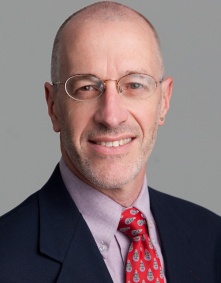
E. Bruce Pitman
Interim Vice President and Chief Information Officer; Professor, Department of Materials Design and Innovation; University at Buffalo
E. Bruce Pitman is a Professor in the Department of Materials Design and Innovation and currently serves as the Interim Vice-President and Chief Information Office at UB. An expert in mathematical modeling and high-performance computing, for the last two decades he has been studying uncertainty quantification – techniques for understanding uncertainty in models of physical or biological systems, and how computing can account for these uncertainties.
Dr. Pitman served as Vice-Provost for Educational Technology from 2000-2203, Associate Dean for Research and Sponsored Programs in the College of Arts and Sciences from 2003-2011, and Dean of CAS from 2011-2016. During 2019-2021 Dr. Pitman served as Interim Director of the Institute for Computational and Data Science. Every summer since 1999 (except for Covid years) he has collaborated with UB’s Center for Computational Research to organize a workshop in computational science for high school students.
Dr. Pitman holds a bachelor's degree in physics and mathematics from Northwestern University and earned his PhD in mathematics from Duke University in 1985. He held postdoctoral appointments at the Courant Institute of Mathematical Sciences, New York University; the Institute for Mathematics and its Applications, University of Minnesota; and the New Jersey Institute of Technology before he joined the UB faculty in 1989.
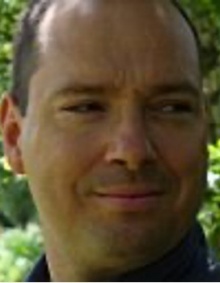
Christophe Nicolle
Professor, Computer Science and Reasoning Systems; University of Bourgogne, France
Christophe Nicolle is Professor at the Université de Bourgogne (UB), France. He is a researcher in Knowledge Engineering and Artificial Reasoning at the CIAD laboratory at the University of Burgundy and a lecturer in the Computer Science department of the Dijon-Auxerre-Nevers IUT. He is co-director of the PEPR Sustainable and Intelligent Cities scientific committee and a member of the national teaching committee for the Technological University Institute bachelor's degree in computer science and data science.
Dr. Nicolle has published over 200 papers in the field of artificial intelligence. He is the co-founder and the former Director of the CIAD-Lab. Over the past 30 years, he has supported numerous start-up and AI transition projects as founder and head of the Checksem business unit with the University of Burgundy. Dr. Nicolle has founded several companies, including Active3D (a subsidiary of Sopra-Steria since 2016) and Wittym in 2019.
Dr. Nicolle is involved in many national research projects in France combining material science and Artificial Intelligence. He is the scientific manager of the AIDD4H joint laboratory, which partners with the biotech company OPM (Drug Discovery and AI). Dr. Nicolle is the scientific co-director of the rehabilitation and innovation research axis at Dijon University Hospital. Winner of the H2030 global innovation competition in the Big Data category in 2014, he is currently working with the Dijon metropolis on the European H2020 Response project on AI and smart cities.
Dr. Christophe Nicolle received his Ph.D. from the Université Bourgogne in Computer Science.
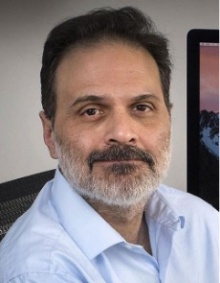
Francis Alexander
Director, AI Research and Strategic Development; Argonne National Laboratories
Francis J. Alexander is the Director for AI Strategy and Research with a National Security Focus at Argonne National Laboratory. Before that, he was the Deputy Director of the Computational Science Initiative at Brookhaven National Laboratory from 2017-2023. Earlier, at Los Alamos National Laboratory he was the acting division leader of the Computer, Computational, and Statistical Sciences (CCS) Division.
During his more than 20 years at Los Alamos, he held several leadership roles, including as deputy division leader of the CCS Division, Information Sciences Group Leader, and leader of the Information Science and Technology Institute. Dr. Alexander first joined Los Alamos in 1991 as a postdoctoral researcher at the Center for Nonlinear Studies. He returned to Los Alamos in 1998 after doing postdoctoral work at the Institute for Scientific Computing Research at DOE’s Lawrence Livermore National Laboratory and serving as a research assistant professor at Boston University’s Center for Computational Science.
Dr. Alexander’s current research interests include artificial intelligence, machine learning, decision-making under uncertainty, optimal design of experiments, computational physics, and nonequilibrium physics. He has led many research projects including as PI of the ExaScale Computing Codesign Center for Machine Learning (ExaLearn) and has published more than 70 papers in peer-reviewed venues.
Dr. Alexander has a Ph.D. in Physics from Rutgers University and a B.S. degree in physics and mathematics from The Ohio State University.
Thanassis Rikakis
The disciplinary model of learning starts from deep knowledge in a specific domain and attempts to solve complex problems through interdisciplinary combinations of domain-specific knowledge. This talk proposes that disciplinary learning models can primarily address problems that are proximal to the involved disciplines. The synthetic (human-environment-technology) and fast-evolving challenges of the 21st century are high dimensional and not proximal to any one specific domain. They therefore require learning models that leverage the innate human ability to originate learning from the complexity and meaning of embodied real-life experiences (such as models suggested by Dewey, Polanyi, Schon, and others). Over the past 10 years, the Iovine Young Academy (IYA) at the University of Southern California (USC) has been developing and implementing a related model called Challenge-Based Reflective Learning (CBRL). The primary aim of the CBRL is to cultivate expert techniques in sociotechnical creativity that can be applied to current and future synthetic challenges and the heterogeneous domain-specific knowledge they encompass. The talk will discuss how the IYA partners with industry to apply the CBRL pedagogy to challenges at the intersection of technology, human-centric design, and business (e.g. extended reality, product innovation, transformative AI, design strategy) and to assist students in developing their own innovation identity and related student-driven ventures. The talk will also discuss the potential of CBRL to diversify learning.
Marcello Araujo
The Minamata Convention on Mercury, a global treaty to which 148 countries (to date) committed to “phase-out and phase-down … mercury use in several products and processes,” inadvertently created a public health challenge. One of the mercury-containing products being phased down and out is dental amalgam, the oldest, most cost-effective, durable, and widely used restorative for dental caries, commonly known as “cavities.” While countries are stepping up caries prevention, these measures cannot eliminate dental caries entirely. As a result, tens of millions of people in the US and around the world are left with no good, affordable alternative to restore teeth affected by dental caries, other than tooth extraction, which leads to several other issues, both functional and social. Other restorative materials currently in use are more expensive, less durable, and more difficult to administer than amalgam. There are currently few efforts to identify a cost-effective amalgam substitute for resource-limited populations. Researchers at UB’s School of Dental Medicine (SDM) have joined with UB’s School of Engineering and Applied Sciences (SEAS) to identify and develop a cost-effective alternative. The initial work will test the feasibility of applying AI and high-throughput screening to dental-materials discovery, an application for which these approaches have not yet been widely employed.
Arthur Fong
Smarter chemistry is Apple’s approach to identifying chemicals that best serve all our priorities, including safety, performance, and environmental impact. This supports Apple’s circular supply chain efforts by minimizing the recirculation of potentially harmful substances. Apple’s efforts to remove potentially harmful chemicals from their products help create safer and healthier workplaces for their employees and suppliers, and safe products for people and the environment.
Joanne McLaughlin
The labor market is experiencing one of the most transformative periods in history. Employers are adopting emerging artificial intelligence (AI) technologies in production and labor-management relations. The use of AI algorithms in hiring and evaluating workers is increasing, without a clear understanding of their effectiveness. The incidence of nonstandard work arrangements such as digital platform gig work and independent contract work has increased. The workers’ bargaining power has been eroding due to an increase in employer concentration and the decline of unions. There are complex interaction effects of emerging technologies in light of deteriorating workers’ power. This talk will discuss several questions that are important to the current labor market. What can we do to protect employment, workers’ rights, welfare, and job quality so that the advances in technology would be welfare-enhancing? What are the effects of emerging technologies on employment, productivity, and job skills and how do these vary with workers’ education, gender, or race? What are some implications of technological advances when companies spend inadequate amounts on workforce training? When is job training appropriate and effective and what policies have been effective for re-skilling workers?
Ajey Jacob
As semiconductor technology nodes shrink, discovering and optimizing materials for these scales becomes increasingly complex. Data-driven innovation provides a robust toolkit to address these challenges. This presentation explores how machine learning, data analytics, and computational modeling accelerate materials development for advanced nodes. Critical applications include discovering materials with properties tailored to nanoscale dimensions, optimizing the integration of novel materials into existing processes, and maximizing manufacturing precision through data-driven control. In addition, specific challenges will be discussed, such as addressing potential bottlenecks in experimental validation and the need for specialized materials and informatics platforms for advanced node development. This approach has the potential to unlock the next generation of semiconductor materials for devices and processes, enabling unprecedented performance and functionality.
K. Venkatesh Prasad
The United States recorded a 12-month moving average of 3.17 trillion vehicle miles traveled in 2022 and, except for a small single-digit percentage of these miles, most were powered by internal combustion engine (ICE) vehicles. The ICE vehicle to electric vehicle (EV) transition is rapidly underway going by the annual growth of EVs compared to ICE vehicles, but this is a long transition as the average age of vehicles is more than12 years and there are about 283 million registered vehicles in the U.S. (mostly light-duty passenger vehicles). This industrial-scale transformation affecting trillions of miles traveled per year and several hundred million vehicles in the U. S. alone hasn’t been witnessed since the advent of the mass-produced horseless carriage in the early 20th century, when “vehicle miles traveled” and the human population was a fraction of what we have today. At the center of all this is the need for continued materials innovation to drive the changes to energy storage, distribution, propulsion systems, computing, and communication that will be required to support the EV transition. This is a design challenge to increase the energy density of EV batteries to reduce “range anxiety,” while bringing costs down; a design challenge to drive mineral and materials circularity. It is also the challenge to drive the materials innovation needed to develop more efficient “compute” stacks (from chips to “cloud”), semiconductors, and the quantum computing capabilities needed to support AI “everywhere.” This is the grand call to materials innovation, for an increasingly fragile planet with finite energy, finite resources, and a relentless need for humans or goods to travel trillions of miles a year, year after year.
Rohini Srihari
There has been much discussion and fanfare around ChatGPT and large language models (LLMs) recently including their ability to respond to complex “prompts” without any additional training. These models are “pre-trained” on vast amounts of data spanning multiple domains and modalities. However, there is also a need to incorporate datasets for specialized domains and tasks into pre-trained LLMs to improve their task-specific performance, specifically where complex reasoning is required. This talk will explore various methods of leveraging small, expert-curated datasets. We start with effective methods of fine-tuning LLMs on datasets using supervised learning. The focus of the talk will be on in-context learning (ICL) and new approaches for constructing and learning effective prompts through curated demonstrations. Several applications of in-context learning will be presented including generating new datasets as well as complex reasoning tasks. The talk concludes with recent innovations for enabling discovery through LLMs, including specialized decoding models capable of performing complex reasoning.
E. Bruce Pitman
The phenomenal increase in compute power and storage, and the advent of new computational processing architectures, places us in a special circumstance where we are capable of enormous calculations that can provide insight into the most difficult of scientific and societal challenges. Our methods of addressing these challenges have, to date, been a mixed blessing. AI systems spot cancers that escape highly trained radiologists. The structure of large protein molecules can be predicted, allowing structural biologists to design medical treatments for life-threatening diseases. Yet these same methodologies can be hijacked without warning by poor data. These computational approaches often yield answers without providing scientific insight. And our misplaced trust in algorithms allowing them to operate without human oversight creates new problems for society. We will discuss computational methodologies that might solve important questions in science and offer thoughts about the responsible use of these capabilities.
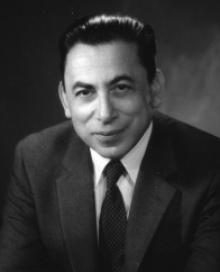
Erich Bloch (January 9, 1925 – November 25, 2016) was a German-born American electrical engineer and administrator. He was involved with developing IBM’s first transistorized supercomputer, 7030 Stretch, and mainframe computer, System/360. He served as director of the National Science Foundation from 1984 to 1990.
Bloch, the son of a Jewish businessman and housewife, lost his parents in the Holocaust, survived the war in a refugee camp in Switzerland and immigrated in 1948 to the United States. He studied electrical engineering at ETH Zurich and received his bachelor of science in electrical engineering from the University of Buffalo.
Bloch joined IBM after graduating in 1952. He was engineering manager of IBM’s STRETCH supercomputer system and director of several research sites during his career. In June 1984, Ronald Reagan nominated Bloch to succeed Edward Alan Knapp as director of the National Science Foundation. The same year, he was elected a foreign member of the Royal Swedish Academy of Engineering Sciences. In 1985, Bloch was awarded one of the first National Medals of Technology and Innovation along with Bob O. Evans and Fred Brooks for their work on the IBM System/360.
After stepping down as director of the National Science Foundation, Bloch joined the Council on Competitiveness as its first distinguished fellow. The IEEE Computer Society awarded him the Computer Pioneer Award in 1993 for high speed computing. In 2002, the National Science Board honored Bloch with the Vannevar Bush Award. He was made a Fellow of the Computer History Museum in 2004 “for engineering management of the IBM Stretch supercomputer, and of the Solid Logic Technology used in the IBM System/360, which revolutionized the computer industry.”
In 2014, Bloch donated $1.5 million to the University at Buffalo to establish the Erich Bloch Endowed Chair for the new Department of Materials Design and Innovation.